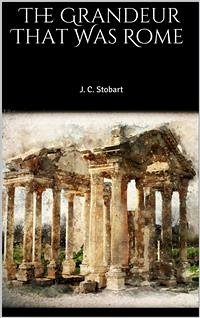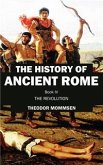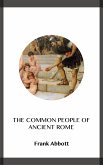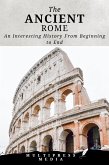ATHENS and Rome stand side by side as the parents of Western civilisation. The parental metaphor is almost irresistible. Rome is so obviously masculine and robust, Greece endowed with so much loveliness and charm. Rome subjugates by physical conquest and government. Greece yields so easily to the Roman might and then in revenge so easily dominates Rome itself, with all that Rome has conquered, by the mere attractiveness of superior humanity. Nevertheless this metaphor of masculine and feminine contains a serious fallacy. Greece, too, had had days of military vigour. It was by superior courage and skill in fighting that Athens and Sparta had beaten back the Persian invasions of the fifth century before Christ, and thus saved Europe for occidentalism. Again it was by military prowess that Alexander the Great carried Greek civilisation to the borders of India, Hellenising Asia Minor, Syria, Persia, Egypt, Phœnicia and even Palestine. This he did just at the moment when Rome was winning her dominion over Latium. Instead, then, of looking at Greece and Rome as two coeval forces working side by side we must regard them as predecessor and successor. Rome is scarcely revealed as a world-power until she meets Greek civilisation in Campania near the beginning of the third century before Christ. The physical decline of Greece is scarcely apparent until her phalanx returns beaten in battle by the Roman maniples at Beneventum. Moreover, in addition to this chronological division of spheres there is also a geographical division. Greece takes the East, Rome the West, and though by the time that Rome went forth to govern her Western provinces she was already pretty thoroughly permeated with Greek civilisation, yet the West remained throughout mediæval history far more Latin than Greek. When Constantine divided the empire he was only expressing in outward form a natural division of culture.
Hinweis: Dieser Artikel kann nur an eine deutsche Lieferadresse ausgeliefert werden.
Hinweis: Dieser Artikel kann nur an eine deutsche Lieferadresse ausgeliefert werden.









